Category Archives for "Southern NH homes for sale"
Southern NH
Southern NH

Buying a home is exciting. It can also feel overwhelming. Many buyers focus on the down payment first. That makes sense. Yet closing costs savings often surprise buyers at the finish line. Knowing what to expect helps you plan with less stress.
In New Hampshire real estate, closing costs are part of every purchase. They are normal. They are predictable. With the right guidance, they are manageable. This article explains what closing costs are, how much to save, and how to feel prepared.
If you are searching for Litchfield houses for sale or Southern NH Houses for sale, this knowledge will help you move forward with confidence.
Closing costs are the fees paid to complete a real estate transaction. They cover services required to transfer ownership. These costs protect both buyers and lenders.
Closing costs are separate from your down payment. They are due at closing. Buyers should plan for them early.
Common closing costs include lender fees, title services, and prepaid expenses. Each cost has a purpose. Each supports a smooth closing.
Understanding these basics is the first step toward strong closing costs savings.

Closing costs affect your total cash needed. Buyers who plan ahead feel calmer. Buyers who do not plan may feel rushed.
Sellers and lenders expect buyers to be prepared. When funds are ready, deals move forward smoothly.
In competitive New Hampshire real estate markets, preparation matters. Strong planning can make your offer feel more confident.
Closing costs savings are not just numbers. They bring peace of mind.
Every transaction is unique. Still, many costs are common across the state.
Buyers often pay lender origination fees. These cover loan processing. Appraisal fees are also common. They confirm home value.
Title search and title insurance protect ownership rights. Recording fees register the sale with the town.
Prepaid items may include taxes and insurance. These are collected upfront.
Knowing these categories helps buyers plan realistic closing costs savings.
Most buyers ask this question early. That is smart.
In New Hampshire, closing costs often range from two to five percent of the purchase price. The exact amount depends on the loan and property.
A $400,000 home may have $8,000 to $20,000 in closing costs. This range sounds wide. A local REALTOR can narrow it.
Planning ahead helps buyers feel in control. Closing costs savings start with clear estimates.

Loan programs affect closing costs.
Conventional loans may have different fees than FHA or VA loans. Some loans allow lower upfront costs. Others include insurance premiums.
Your lender will explain each fee. Ask questions. Clear answers reduce stress.
Choosing the right loan supports long term comfort and healthy closing costs savings.
Prepaid costs confuse many buyers. They are not extra fees. They are future expenses paid early.
Prepaid items often include homeowners insurance and property taxes. Lenders collect them to ensure payments stay current.
These funds often go into an escrow account. The account pays bills on your behalf.
Knowing this helps buyers understand where their money goes.
Title services protect buyers. They confirm clear ownership.
Title insurance guards against past issues. It protects your investment.
Attorney fees may apply depending on the transaction. Legal review adds another layer of security.
These costs support peace of mind. They also support smart closing costs savings planning.
Lender fees cover loan setup and review.
The appraisal confirms value. It protects buyers and lenders.
Appraisal gaps can create challenges. Knowing this early helps buyers plan.
Strong communication with your lender keeps expectations clear.
Early estimates reduce surprises.
Your lender provides a loan estimate. Review it carefully.
Your REALTOR adds local insight. They explain town specific fees.
Together, these tools guide realistic closing costs savings.

Yes, sometimes.
Seller concessions allow sellers to cover part of the buyer’s costs. This depends on the market and loan type.
In balanced markets, concessions are more common. In hot markets, they are less common.
Your agent will advise what is realistic for Litchfield houses for sale and Southern NH Houses for sale.
Strong offers balance price and terms.
Requesting help with closing costs may affect offer strength. Strategy matters.
Your REALTOR will guide timing and language. Smart negotiation protects your goals.
This planning supports successful closing costs savings.
Many buyers qualify for help.
State and local programs offer assistance. Grants and credits may apply.
Eligibility depends on income and location.
Exploring these options early supports strong financial planning.

Saving feels easier with a plan.
Start with a clear target. Break it into monthly goals.
Automate savings when possible. Small steps add up.
Confidence grows as your account grows.
Some buyers spend savings too early.
Large purchases before closing can cause issues. Lenders review finances carefully.
Keep funds stable. Avoid new debt.
Discipline protects your closing.
Markets move quickly.
Buyers who prepare early feel ready when the right home appears.
Preparation matters in New Hampshire real estate.
Closing costs savings give you flexibility.
Money creates emotion.
Stress fades with preparation.
Confidence replaces worry when plans are clear.
This calm helps buyers make better decisions.
A REALTOR explains costs clearly.
They coordinate with lenders and attorneys.
They help avoid surprises.
Local experience matters.
Every town is different.
Fees vary by location.
Litchfield houses for sale may differ from nearby towns.
Southern NH Houses for sale reflect many micro markets.
Closing day feels exciting.
Final numbers match earlier estimates.
Questions get answered.
Preparation leads to celebration.
Buying a home is a big step.
Preparation builds confidence.
Closing costs savings protect your peace of mind.
With the right plan, buying feels rewarding.

If you need more information on closing costs savings, or are ready to sell your house give us a call at (603) 883-8840. You can also sign up for your dream home search or reach out to Our Agents for more information. We’d love to help you with your real estate needs.

Every homeowner wants a clean and beautiful kitchen, especially when preparing to sell. This is why countertop care matters so much. Strong countertop care not only helps your kitchen look amazing, but it also protects the value of your property. Many South Nashua houses for sale and Southern NH houses for sale highlight updated kitchens because buyers love well kept spaces. With the right tips, you can take care of every type of countertop in a simple and stress free way.
In this guide, you will learn how to maintain each popular countertop style. You will also discover small but powerful habits that can help your kitchen stay fresh and inviting. These countertop care tips can help your home shine whether you are staying long term or planning to enter the real estate market soon.
When you think about important home features, the kitchen is usually near the top of the list. Buyers notice countertops right away because they take up so much visual space. This means countertop care can influence how welcoming your kitchen feels. Homes with clean and polished countertops often make a stronger emotional impression. You want buyers to walk in and feel comfort, excitement, and confidence.
Countertop care also protects your investment. Many materials can stain, crack, fade, or dull if they are ignored. Good habits prevent damage and extend the life of your kitchen surfaces. This is helpful for homeowners planning to sell Southern NH houses for sale or for families who simply want a beautiful kitchen that stands the test of time.
Now let us look at how to care for each type of countertop in a simple and friendly way.
Granite remains one of the most popular choices because it looks stunning and feels strong. Granite countertops can last many years with the right countertop care plan.
Granite likes gentle cleaning. Use warm water with mild dish soap. Wipe spills as soon as possible. Acidic liquids like juice or vinegar can harm the sealant, so fast cleanup is important. Use a soft cloth for best results.
To keep granite shining, use a cleaner made for natural stone. These cleaners protect the surface and help it stay glossy. Avoid harsh scrub pads because they create tiny scratches that build up over time.

Granite needs to be sealed. This helps stop stains and keeps the surface smooth. You can test your seal by placing a few drops of water on the surface. If the water stays on top, your seal is strong. If it soaks in, it is time to reseal. Most homeowners reseal once a year.
Granite countertop care is simple once you build these habits. They help granite stay rich in color and beauty, which adds value to many South Nashua houses for sale.
Quartz countertops are known for strength and style. They look luxurious and do not need as much care as stone.
Wipe your counters with warm water and a gentle soap. Quartz resists stains, but you should still clean spills quickly. Use a soft cloth and avoid bleach or heavy chemicals.
Quartz does not like direct heat. Place warm pans on a trivet. A simple habit like this protects your countertop from marks that can distract buyers when viewing Southern NH houses for sale.
If something dries on the surface, let a damp cloth sit on the spot for a few minutes. It will soften so you can wipe it away with ease. Do not scrape with metal tools.
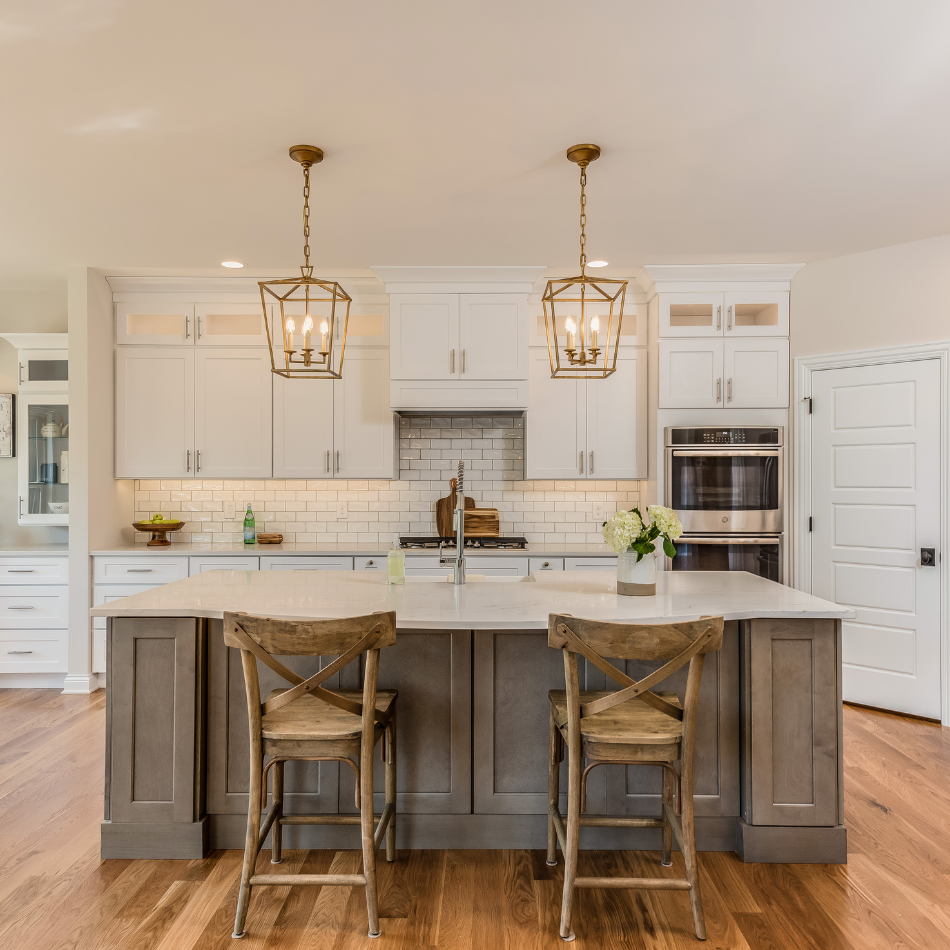
Marble countertops are elegant and classic. Buyers love them because they add luxury to any kitchen. Marble does require more care, but the results are worth it.
Marble is sensitive to acids. This means lemon juice, wine, or soda can harm the surface quickly. Wipe up spills fast. Clean the surface with mild soap and warm water.
Marble can get dull spots called etches. Use cutting boards to avoid knife marks. Keep coasters under drinks. Do not place anything sharp or rough directly on the surface.
Some homeowners polish marble once or twice a year to keep it bright. A stone safe polish can restore shine and charm.
Marble countertop care helps create a timeless look. It is also something many luxury buyers notice when exploring South Nashua houses for sale.
Laminate countertops are found in many homes because they are affordable and come in many styles. Laminate is easy to maintain with simple countertop care habits.
Use warm water and a gentle cleaner. Laminate does not like too much water, so wipe dry each time. Avoid strong chemicals because they can fade the surface.
Never place a hot pan on laminate. Use trivets and cutting boards. Laminate can scratch easily, so protect it from sharp objects.
A paste of baking soda and water can help lift stains. Let it sit for a few minutes, then wipe carefully.
Laminate countertop care is simple and quick, which is great for busy homeowners or anyone preparing to list Southern NH houses for sale.
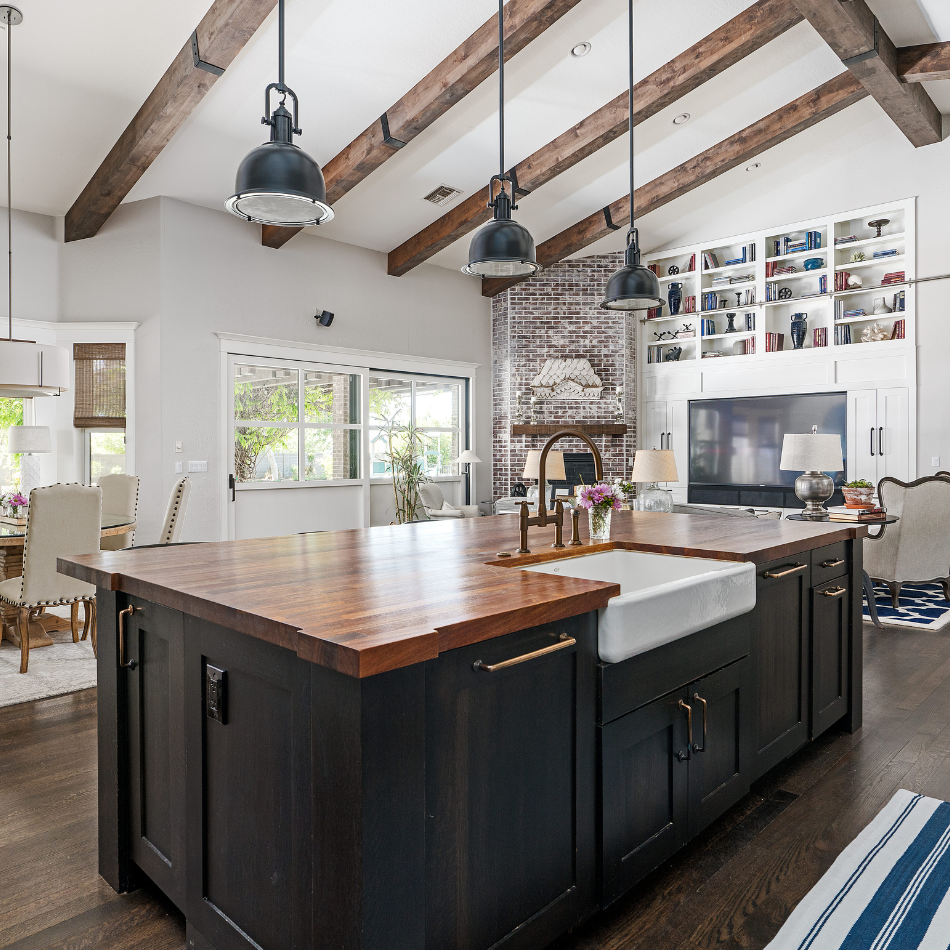
Butcher block countertops feel warm and charming. They bring natural beauty into your kitchen.
Clean the surface with warm water and gentle soap. Dry it well because wood does not like to stay wet. Too much water can cause swelling or stains.
Every few months, apply food safe mineral oil. This protects the wood and keeps it from cracking. Spread the oil evenly, let it soak in, and then wipe the extra off.
You can lightly sand the surface if scratches appear. After sanding, apply oil again. This is a great way to refresh your countertop and make it look new.
Butcher block countertop care adds comfort and charm to your kitchen. Buyers often notice this warm feature in many cozy Southern NH houses for sale.
Concrete countertops are bold and modern. Many homeowners love their strong style.
Use warm water and a stone safe cleaner. Avoid acids because they leave marks. Always wipe away water to keep the surface dry.
Concrete needs sealing to stay strong. Reseal once or twice a year. This keeps the surface smooth and safe from stains.

Use cutting boards and do not drop heavy items on the surface. Concrete can chip even though it feels very strong.
Concrete countertop care is simple once you know what it needs. This modern look stands out in many updated South Nashua houses for sale.
Soapstone is rich and soft to the touch. Homeowners love it for its natural look.
Soapstone does not stain easily. Clean it with mild soap and warm water. A soft cloth works well.
Many homeowners use mineral oil to deepen the color. This is optional but often makes the countertop look amazing. Apply a thin layer and wipe off the excess.
Soapstone scratches easily, but you can fix them. Sand lightly with fine sandpaper and apply oil.
Soapstone countertop care keeps this surface looking smooth and beautiful for years.
Tile countertops are strong and classic. They are found in many older and newer homes.
Clean tiles with warm water and mild cleaner. Use a soft sponge for the best results.
Grout can stain, so clean it often. A grout safe brush helps. Reseal the grout once a year to keep it bright.
Tile countertop care keeps your kitchen clean and full of charm.

Strong countertop care gives your home a clean and welcoming feel. This is important whether you plan to stay or plan to enter the market soon. Buyers love kitchens that feel fresh and move in ready. This is why many South Nashua houses for sale and Southern NH houses for sale highlight updated and well cared for countertops.
Your kitchen is one of the most emotional rooms in your home. It can set the tone for showings and create a powerful first impression. With proper countertop care, your kitchen will look bright, clean, and full of life.
Countertop care does not need to be stressful. Once you learn the right habits for each type of surface, the process becomes simple and even enjoyable. Your kitchen will stay fresh, inviting, and ready for guests or buyers. This makes your home stand out and feel more valuable.
If you are planning to sell, strong countertop care can make your kitchen shine in photos and showings. Buyers appreciate a home that feels loved. This simple effort can help your property compete with other Southern NH houses for sale.
If you have questions about preparing your home or want advice on real estate, feel free to reach out. I am always here to help guide you through your next move with comfort and confidence.
If you need more tips on countertop care, or are ready to sell your house give us a call at (603) 883-8840. You can also sign up for your dream home search or reach out to Our Agents for more information. We’d love to help you with your real estate needs.

Getting your home ready for visitors can feel exciting. It can also feel a little stressful if you do not know where to start. With the right plan, you can make a warm and welcoming space that feels good for everyone. This blog will guide you through simple ideas that help you get your home ready fast and with ease. These tips are perfect for any home and work great when you want to impress your visitors without feeling overwhelmed. The focus keyphrase guest prep will help you remember the simple steps you can follow each time you are expecting guests.
As a REALTOR in New Hampshire, I often see how a clean and inviting home makes a strong impact. Buyers love homes that feel peaceful and well cared for. Sellers feel proud when their home shines. These tips will help you prepare for visitors and keep your home looking its best. This is also helpful if you are thinking about selling soon. A home that feels warm and ready for company often feels ready for buyers too. This is why guest prep is so useful for both homeowners and future sellers who want to stand out in the Southern NH market. If you are looking for South Nashua houses for sale or Southern NH houses for sale, you already know how attractive a tidy and thoughtful home can feel.
Guest prep is more than cleaning. It is about creating an experience. Your visitors notice more than you think. They see how cozy the sofa looks. They enjoy the smell of a clean kitchen. They smile when they see a tidy bathroom with fresh towels. These little moments add up and help your guests feel special. The best part is that guest prep does not require fancy items. Most of the time, simple touches can have the biggest impact.
When you take time for guest prep, your home feels comfortable, organized and peaceful. This helps you enjoy your time with your visitors rather than rushing around at the last minute. It also boosts your confidence because your home reflects the care you put into it. Many homeowners in Southern New Hampshire feel the same way. They want their homes to feel warm, inviting and ready for friends and family.

Your entryway creates the first impression. It is the first place guests see and the first moment they feel your home’s energy. When this space is clean and uncluttered, it sends a warm signal that says you care.
Start by clearing shoes, coats or bags that tend to pile up. Wipe the door and clean the doorknob. Sweep the floor and shake out any rugs. These simple steps help the space look polished. If you want to make the entryway feel extra cozy, place a small plant or a bowl for keys. The goal is to create a simple and welcoming space that puts your guests at ease the moment they walk inside.
Homeowners looking at South Nashua houses for sale or Southern NH houses for sale often pay attention to this area. A tidy entryway sets a strong tone and makes visitors want to see more of the home.
The living room is where you may spend most of your time with guests. This space should feel relaxed and comfortable. During your guest prep, start by fluffing the pillows and folding any blankets. Clear off coffee tables and wipe down surfaces so the room feels fresh. You can also add a scented candle with a soft fragrance like vanilla or fresh linen. Scents help create emotion and comfort.
Next, think about lighting. Soft lighting makes the room feel calm. Use table lamps if overhead lights feel harsh. Light is powerful and plays a big role in how your guests feel in the space.
Many buyers touring Southern NH houses for sale talk about how they imagine themselves relaxing in the living room. A tidy and welcoming space helps them picture that life with ease. This is why living room guest prep has value even beyond hosting. It helps you see your home with fresh eyes.
Guests love to gather in the kitchen. This room brings people together and usually becomes the center of conversation. Because of this, kitchen guest prep is important. Start by clearing counters so the space looks open. Wipe appliances, clean the sink and empty the trash. These steps make your kitchen feel clean and ready.
A simple tray with snacks or a fruit bowl adds a warm touch. It tells your guests you planned ahead for them. You can also place a clean dish towel near the sink and make sure the dishwasher is empty if you expect dishes.
Kitchens often make a big impact on buyers too. If you follow the same kitchen guest prep steps before a showing, the home feels more appealing. Clean kitchens help South Nashua houses for sale and Southern NH houses for sale look polished and move-in ready.

Outdoor spaces matter if guests will walk through the yard or patio. Sweep the walkway and bring in any clutter. Clean outdoor seating and add a few cushions. Even small outdoor areas benefit from quick guest prep. Fresh air, neat lines and tidy spaces make your home feel cared for both inside and out.
If you are planning to sell soon, outdoor areas are a major selling point. Homes with clean yards attract serious buyers. This is common for South Nashua houses for sale and Southern NH houses for sale where outdoor living is popular.
Guest prep does not need to feel strict. Some of the most powerful touches are personal and simple. A framed photo, a handwritten welcome note or a favorite treat can make guests smile. These little details help guests feel loved.
A playlist with calm background music also adds emotion and creates a cozy setting. Music helps people relax. It sets the tone for your time together and makes the home feel peaceful.
Personal touches also help a home feel lived in when staged for buyers. People love homes with warmth and charm. They imagine joyful memories there.
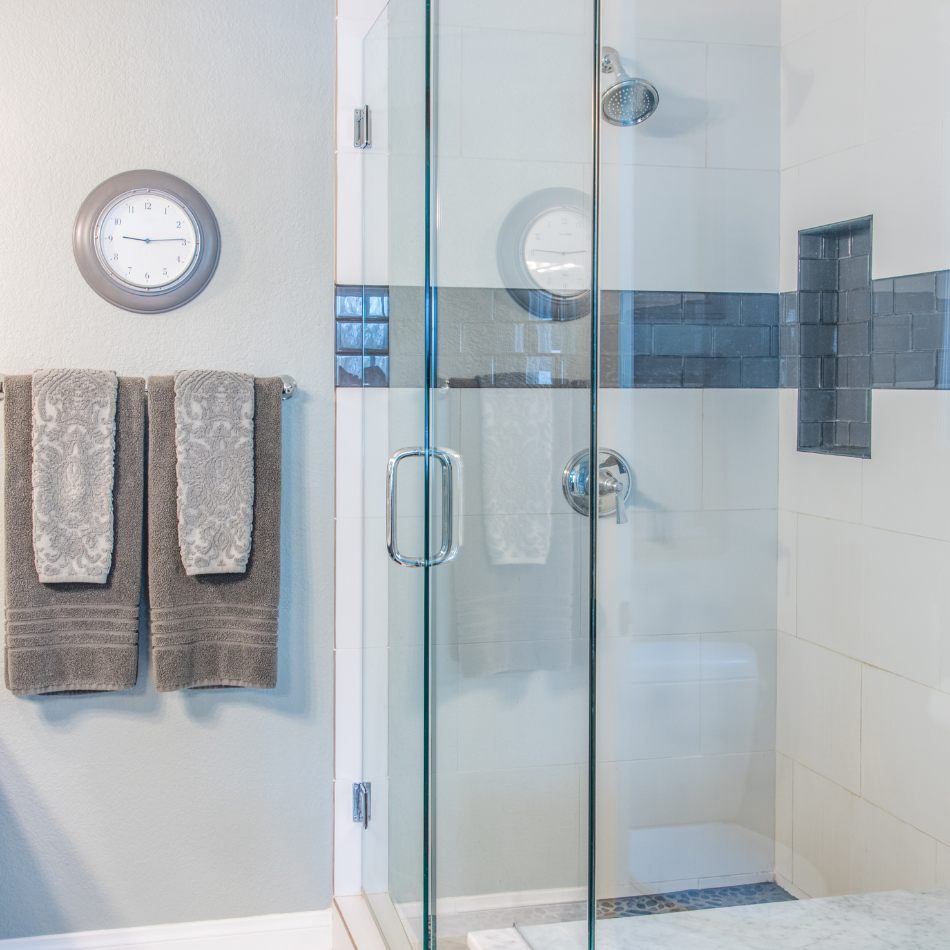
Air quality matters more than most people think. Open windows to let in fresh air before guests arrive. A short burst of outdoor air helps remove stale smells. You can also use a diffuser with a mild scent. Just keep it soft so it does not overwhelm your visitors.
Fresh air makes a strong impact during home showings too. Buyers feel more comfortable in homes with clean, light scents. This is true for South Nashua houses for sale and Southern NH houses for sale where many buyers focus on comfort and peace.
Clutter makes a home feel stressful. When you expect guests, take a few minutes to pick up toys, mail or random items. Place them in a basket or drawer. Your home does not need to look perfect. It just needs to feel calm.
Clutter free homes also show better in the real estate market. Buyers notice when spaces feel open and organized. They find it easier to imagine their own belongings there. These simple guest prep steps help both homeowners and sellers.
The most important step in guest prep is to relax. Visitors come to spend time with you. They do not expect perfection. When your home feels warm and inviting, you can enjoy your time together without worrying about every detail. A comfortable host makes guests feel comfortable too.
This same mindset helps homeowners who plan to sell soon. A relaxed and confident approach makes the process easier. Homes in Southern NH show better when the seller feels calm and ready.
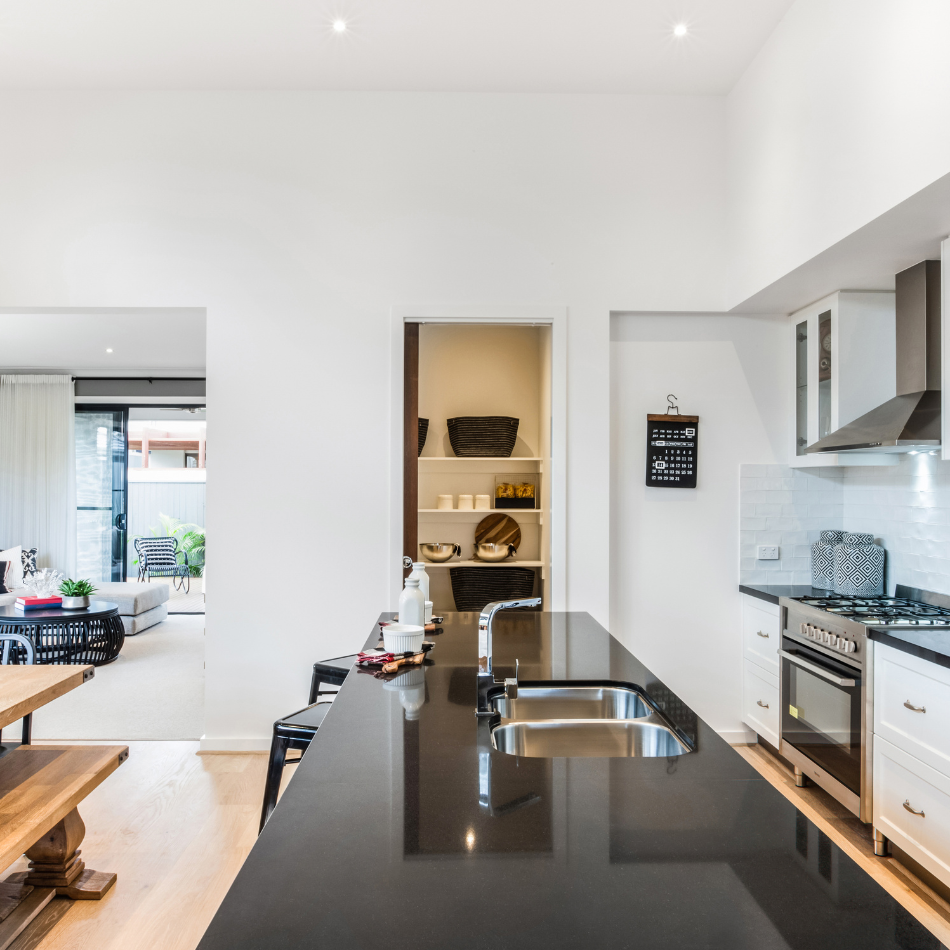
Guest prep is simple when you follow these easy steps. Your home feels warm, inviting and ready for company. Clean spaces, soft lighting, fresh air and small personal touches make a big difference. These ideas help you enjoy your visitors and feel proud of your home.
They also help if you are thinking about selling in the Southern NH market. Buyers love homes that feel cared for and peaceful. Whether you are hosting friends or preparing for showings, these steps can help your home shine. If you need help finding South Nashua houses for sale or Southern NH houses for sale, our office is always here to guide you.
Your home can feel cozy, joyful and ready for every visitor. With thoughtful guest prep, you can create wonderful memories and share your beautiful space with the people you love.
If you need more tips on guest prep, or are ready to sell your house give us a call at (603) 883-8840. You can also sign up for your dream home search or reach out to Our Agents for more information. We’d love to help you with your real estate needs.

When you put your home up for sale, the excitement grows fast. You hope for strong interest and you want the right buyer to appear. Many sellers wonder what to do next. These powerful home sale tips will guide you as you move through the selling process in a simple and confident way. You will feel more prepared and more in control. These steps also help buyers stay excited about your listing, especially when they are looking at South Nashua houses for sale or Southern NH houses for sale.
Selling a home can feel overwhelming at times, but these steps make the process smooth and stress free. Even small actions can create a big impact on how buyers view your property. Let’s walk through the five smart things you should do once your home is on the market.
Once your home is active, buyers may want to see it with little notice. Staying ready is one of the most important home sale tips because first impressions matter. Many buyers search online for Southern NH houses for sale, and they expect clean and inviting homes when they arrive.
Keep your home clean and bright. Make your beds each morning. Put dishes away. Wipe the counters. Pick up toys and laundry. These little habits help your home shine. A tidy home creates an emotional pull and helps buyers imagine their own life in your space.
You can also open blinds to let sunlight flow in. Natural light makes rooms feel warm and peaceful. Turn on soft lights before a showing so your home feels welcoming the second buyers step inside.
If you have pets, keep their items neat and organized. Remove pet beds and food bowls if possible. Some buyers are sensitive to pet odors or allergies. A clean and fresh smelling home builds trust and confidence.
Even though keeping your home show ready may feel tiring, it is a key part of the journey. Buyers compare your home to many other South Nashua houses for sale, and you want yours to stand out.

Your REALTOR is your partner during the sale. One of the most helpful home sale tips is to stay in close contact with your agent. Communication keeps the process smooth, and it helps you react quickly to market changes.
Talk about the number of showings you receive and what the feedback sounds like. Many buyers share notes with their agents about likes and concerns. You may hear comments about paint colors, room size, or the layout. These notes help you understand what buyers want most in Southern NH houses for sale.
When you stay connected with your agent, you can make fast improvements if needed. You may decide to touch up paint, add lighting, or rearrange furniture. Sometimes small changes can help the next buyer see your home in a fresh way.
You can also discuss pricing. Many markets shift week by week. If other South Nashua houses for sale come on the market at lower prices, you may want to adjust to stay competitive. Your agent will guide you through these decisions so that you do not feel stressed or lost.
Your curb appeal is your home’s handshake. It offers the first emotional connection for buyers. Strong curb appeal helps your home stand out from other South Nashua houses for sale. Simple outdoor improvements can create a powerful impact.
Start by cleaning your front yard. Trim bushes and trees. Mow the lawn and remove weeds. Sweep walkways and remove leaves. Add fresh mulch to garden beds. These small steps brighten the entire exterior.
A bold front door creates a warm feeling before buyers step inside. You can paint your door in a rich and inviting color. You can also clean or update outdoor lights for more charm. A clean mailbox and tidy house numbers also improve the overall look.
Buyers want to see a home that feels loved and well cared for. Your outdoor space tells a story. A well maintained yard helps them feel confident about the inside too. These simple home sale tips build trust and help buyers feel excited about your home.
Even if buyers first discover your property online while looking for Southern NH houses for sale, they will always drive by before booking a showing. Make sure the outside looks strong, bright, and inviting.

Another powerful step is to review showing feedback often. This is one of the smartest home sale tips because feedback gives you insight into what buyers see and feel when they walk through your home.
Buyers may comment on small things you did not notice. They may say the rooms feel dark, the closets look full, or the bedrooms feel cluttered. They may mention a strong smell or that a space seems smaller than expected. These comments tell you what to improve next.
You can start by decluttering again. Remove extra items from closets and shelves. Pack away out of season clothing. Clear surfaces so that your home feels larger. This also helps buyers picture their own items in the space.
You can also add lighting. A simple floor lamp or table lamp brightens rooms and creates a more cheerful setting. You can choose warm bulbs that make the space feel cozy.
If buyers mention odors, you can clean carpets, scrub surfaces, and open windows for fresh air. You can also use a light and soft scent that does not overpower the space.
Feedback is a gift because it shows what buyers want in Southern NH houses for sale. When you adjust based on feedback, you increase your chance of receiving a strong offer sooner.
Flexibility is one of the most powerful home sale tips you can follow. The more buyers who see your home, the faster it can sell. When you allow easy access, you help your listing compete with other South Nashua houses for sale.
Some buyers work long hours and need evening showings. Others may only have time during weekends or early mornings. Be as open as possible with your schedule. Try not to limit showing times unless it is absolutely needed.
If you work from home or have children, you can plan ahead. Keep a small basket where you can quickly toss toys or mail. Keep a bag packed for quick trips out of the house. You can take a short walk or relax in your car during showings.
Buyers feel more eager to make an offer when they have a smooth and easy experience. Your flexibility shows that you are ready to move forward. It also spreads your home to a wider audience looking for Southern NH houses for sale.

Here are a few extra ideas to keep you ahead of the competition. These small steps can make your listing shine even brighter.
Clean often and remove odors. A fresh scent creates a strong emotional impact.
Change outdated lights, replace old knobs, and repair small issues. Buyers appreciate these simple upgrades.
Warm homes feel welcoming during winter. Cool homes feel inviting during summer.
If your home has a fireplace, a large deck, or a finished basement, make sure it shines. Buyers want to imagine fun times and peaceful moments in the home.
Homes sell at different times and speeds. Some listings move fast. Others take a little more time. Trust your real estate plan.
These bonus home sale tips help your home compete with other South Nashua houses for sale and show buyers that your home is a smart choice.

The Southern NH market is active and full of different types of homes. Buyers look for quiet neighborhoods, easy travel access, and friendly communities. Many buyers compare several Southern NH houses for sale before choosing the right fit.
Your home stands out when you follow these helpful steps. Clean spaces, flexible showings, and strong communication help buyers feel excited and confident. These simple habits can speed up your sale and help you get a stronger offer.
Homes with great curb appeal and inviting interiors always perform better. Buyers remember how a home feels. A bright and open home feels safe and peaceful. These emotional moments help buyers picture their future life there.
Selling your home is a big step. You want the process to be smooth, exciting, and rewarding. These simple and powerful home sale tips help you stay ready and feel confident each day. They also help buyers fall in love with your home the moment they arrive.
When you keep your home clean, stay flexible, review feedback, and work closely with your agent, you build strong momentum. Your home starts to shine among other South Nashua houses for sale and Southern NH houses for sale.
These steps may feel small, but they make a big difference. Buyers want to see a bright, clean, and cared for home. When you follow these steps, you are one step closer to a successful closing.
If you need help with your home sale or want expert local guidance, a trusted REALTOR in Southern NH can help you make the best move.

If you need more home sale tips, or are ready to sell your house give us a call at (603) 883-8840. You can also sign up for your dream home search or reach out to Our Agents for more information. We’d love to help you with your real estate needs.

Selling your house at Christmas may feel tricky. Many homeowners think winter is a slow time for buyers. However, with the right strategy, selling your home during the holidays can be successful. The key is to make your home feel cozy, inviting, and ready for buyers. The focus keyphrase selling your house at Christmas is more than a seasonal tip. It is about showing your home in a way that feels warm, bright, and memorable. This blog will guide you through easy and effective ideas to sell your South Nashua home or any Southern NH house during the holidays.
As a REALTOR in New Hampshire, I often see homes shine during the winter season. A few thoughtful touches can make your home stand out. Buyers who are shopping during the holidays tend to be serious. Many are motivated to close quickly before the new year. With proper planning, your home can appeal to this special group of buyers.
If you are looking for South Nashua houses for sale or Southern NH houses for sale, think of holiday staging as a tool to create emotion. Homes that feel lived-in, yet clean and well cared for, tend to attract strong offers. Selling your house at Christmas can be less stressful than expected if you follow these strategies.

Many sellers avoid the holidays, thinking buyers will be too busy. In reality, serious buyers often shop in December. They have more free time and fewer homes to choose from. Less competition means your home can stand out.
Homes that show well during the holiday season create a memorable first impression. Buyers remember cozy lighting, soft music, and the smell of seasonal treats. These emotional touches can influence a buyer’s decision.
Additionally, selling during the holidays may shorten the timeline. Buyers motivated to close before the end of the year may make faster decisions. This is a strong reason to consider listing your home in South Nashua or other areas in Southern NH.
Winter staging is essential when selling your house at Christmas. Start by decluttering rooms. Remove excess furniture, personal photos, and items that distract buyers. Your goal is to make each room feel spacious, bright, and inviting.
Next, focus on lighting. Winter days are shorter, so your home may appear darker than usual. Add table lamps, floor lamps, and bright overhead lighting. Use LED bulbs for a natural and warm effect. Proper lighting highlights your home’s best features and creates a welcoming atmosphere.
Decorate tastefully with holiday accents. Avoid overdoing it. A small wreath on the front door, a few candles, or a simple centerpiece is enough. These touches help buyers feel the holiday cheer without distracting from your home.
First impressions matter more than ever. Your home’s exterior is the first thing buyers see. Clean walkways, sweep snow, and remove ice. Add fresh outdoor lights to brighten the path.
Trim trees and shrubs to reveal the home’s best angles. A small arrangement of seasonal plants or a festive planter by the front door works wonders. Keep the décor simple and elegant.
Winter curb appeal is essential for South Nashua houses for sale and Southern NH houses for sale. A clean, bright exterior invites buyers inside and sets the tone for their visit.
Decorating for the holidays can enhance your home sale if done correctly. Avoid overly personal or flashy decorations. Stick to neutral, elegant touches.
Place a small wreath on the front door. Add a few candles or a simple centerpiece on the dining table. These small additions create warmth and help buyers picture themselves celebrating in the home.
Do not clutter rooms with too many ornaments or seasonal items. Buyers should focus on your home, not your decorations. The goal is to evoke emotion without distraction.

Nothing sells a home faster than a space that feels comfortable. Selling your house at Christmas means creating a cozy environment. Warmth and comfort are key.
Add soft blankets to couches and chairs. Fluff pillows for a polished look. Light a fire in the fireplace if you have one. Soft, ambient lighting makes rooms feel welcoming and intimate.
A warm, inviting home makes buyers feel at ease. Emotional connection is a big factor in real estate decisions. This is why winter staging is so important for South Nashua houses for sale and Southern NH houses for sale.
Cleanliness is critical. Buyers may be distracted by dust, clutter, or bad odors. Selling your house at Christmas means keeping every space tidy.
Vacuum carpets, mop floors, and dust all surfaces. Clean windows so natural light can brighten the rooms. Remove pet items, dirty laundry, or toys.
Fresh scents help buyers feel comfortable. Bake cookies or use a subtle essential oil diffuser. Avoid overpowering fragrances that may turn people off. A home that smells fresh and clean creates a lasting positive impression.

Holidays can be busy, but flexibility is key. The more showings you allow, the better your chances of selling.
Try to accommodate buyers’ schedules, even if it means evenings or weekends. Consider last-minute appointments for serious buyers.
Buyers motivated to purchase during December often act quickly. Flexibility shows you are willing to work with them. This can result in faster offers and a smoother sale process.
Buyers notice energy costs during winter. Selling your house at Christmas is a perfect time to highlight winter-friendly features.
Show off insulated windows, a new furnace, or programmable thermostats. Keep the home warm during showings. Comfortable temperatures make buyers linger and imagine life in the space.
Energy efficiency is a major selling point for South Nashua houses for sale and Southern NH houses for sale. Highlighting this adds value and confidence for buyers.
Proper pricing is always essential. Holiday buyers are serious, but pricing too high may prevent offers. Selling your house at Christmas works best when the home is priced fairly.
Work with your REALTOR to analyze the market. Look at similar homes in South Nashua and surrounding areas in Southern NH. Competitive pricing attracts buyers who are motivated to close quickly.
A strategic price can create multiple offers and potentially increase the final sale price. Pricing matters now more than ever when competition is lower.

Marketing plays a key role during the holidays. Online listings should include bright, high-quality photos. Winter photos should show a clean, cozy home. Avoid showing clutter or holiday chaos in pictures.
Highlight seasonal advantages like warm interiors, a fireplace, or a snow-free driveway. Share your listing on social media and with local networks. Buyers searching for South Nashua houses for sale and Southern NH houses for sale rely on accurate and appealing listings.
Your REALTOR can help craft a marketing plan tailored to the holiday season. This ensures your home reaches motivated buyers efficiently.
Selling your house at Christmas requires planning. Keep an organized schedule for showings, cleaning, and any last-minute fixes.
Have key documents ready, such as disclosures, utility bills, and warranty information. Prepared sellers are confident sellers. Confidence reassures buyers and speeds up the negotiation process.
Organization also reduces stress during what can be a busy and emotional season. It allows you to enjoy the holidays while still selling your home successfully.
Winter days are short, and lighting can make a huge difference. Selling your house at Christmas is easier when your home feels bright and cheerful.
Turn on lamps and overhead lights during showings. Use warm bulbs to create a welcoming glow. Keep window coverings open for natural light. Well-lit homes feel spacious, inviting, and happy.
Lighting is a subtle but powerful tool in selling South Nashua houses for sale and Southern NH houses for sale during winter. It helps buyers connect emotionally to the home.

The holidays are about togetherness. Highlight spaces where guests can gather.
Keep dining areas tidy and uncluttered. Show living rooms with seating arrangements that encourage conversation. Kitchens should feel functional and welcoming.
Buyers love homes that accommodate family and friends. Selling your house at Christmas gives them a chance to imagine joyful celebrations in your space.
Selling your house at Christmas is easier with professional guidance. A REALTOR can help stage your home, set the right price, and market to serious buyers.
They can also coordinate showings during the busy holiday season. This allows you to enjoy the holidays without sacrificing your home sale goals.
Professional support ensures your home attracts the right buyers at the right time. It increases your chances of a fast, successful sale.
Seasonal touches can enhance your home sale. Use them sparingly to avoid overwhelming buyers.
Add a simple wreath, a few candles, or a holiday-themed centerpiece. Keep decorations neutral and elegant. Subtle seasonal accents create warmth without distracting from your home’s features.
The right balance helps buyers picture themselves celebrating the holidays in your home. It can also increase emotional attachment, which leads to serious offers.
Selling your house at Christmas is possible and often advantageous. With thoughtful planning, a clean and cozy home, and strategic marketing, you can attract serious buyers.
Focus on creating warmth, comfort, and light. Keep spaces clean, uncluttered, and inviting. Use subtle holiday accents to evoke emotion. Highlight energy efficiency and entertaining spaces.

benefit from holiday staging, cozy lighting, and professional marketing. Selling your house at Christmas can be less stressful and more successful than you might expect.
With these tips, your home can stand out during the holidays. Buyers will remember the warmth, the care, and the inviting atmosphere. This can lead to faster offers and a smooth closing.
Selling your home in December is not just possible. It can be one of the smartest moves if you approach it with preparation, thoughtfulness, and strategy.
If you need more tips on selling your home at Christmas, or are ready to sell your house give us a call at (603) 883-8840. You can also sign up for your dream home search or reach out to Our Agents for more information. We’d love to help you with your real estate needs.

Deciding to relocate near a family member can be emotional and challenging. Life changes, health concerns, or other needs can signal that it is time to move closer to a loved one. This decision involves both heart and practical considerations. In New Hampshire, whether you are exploring South Nashua houses for sale or Southern NH houses for sale, knowing the signs can help you plan a smooth transition.
Moving closer allows you to support your loved one while still managing your own life. It can make daily care, emergencies, and companionship much easier. Understanding when the time is right ensures you make thoughtful and informed decisions.
A loved one may need support due to health changes, mobility issues, or daily challenges. Signs include frequent accidents at home, missed medications, or increasing loneliness. If visits from a distance become stressful or insufficient, it could indicate it is time to move closer.
Tip: Keep a list of tasks that are difficult to manage remotely. This helps evaluate whether your local presence is necessary.
Transition phrase: Additionally, emotional support is just as important as physical assistance when caring for family members.

Before relocating, assess your own life circumstances. Consider work flexibility, finances, and housing options in the area. Determine how a move affects your career, family, and personal well-being. Relocating is a big decision, so clear planning ensures a positive outcome for everyone.
Tip: Explore South Nashua houses for sale and Southern NH houses for sale to understand local market options. This can make your transition smoother.
Transition phrase: Moreover, evaluating your own situation helps prevent added stress during the relocation process.
Finding the right home near your loved one is critical. Consider accessibility, safety, and convenience. Single-level homes or properties with minimal stairs are often ideal for aging adults. Homes near healthcare facilities or essential services can make daily life easier.
Tip: Work with a knowledgeable real estate agent who understands Southern NH housing markets. They can identify homes that meet both your needs and your loved one’s.
Transition phrase: Furthermore, knowing your housing needs early saves time and ensures a better match in your search.

The timing of your move can impact both your loved one and yourself. Consider seasonal factors, school schedules, or work transitions. Planning in advance helps coordinate moving logistics, housing availability, and family adjustments.
Tip: List tasks such as decluttering, arranging movers, and updating addresses well before your move date.
Transition phrase: Additionally, thoughtful timing reduces stress and ensures a seamless transition into your new home.
Moving closer may allow you to manage daily care or coordinate professional support. Explore local services such as home health aides, meal delivery, or transportation. Building a support network helps you provide comprehensive care without overwhelming yourself.
Tip: Use local resources and community organizations. Southern NH has many programs designed to support families and seniors.
Transition phrase: Furthermore, combining personal presence with professional support ensures your loved one receives the best care possible.
Ensure all legal and medical documents are current. Powers of attorney, healthcare directives, and estate planning may need updates. Proper documentation avoids confusion during emergencies.
Tip: Consult a lawyer or elder care advisor if necessary. Keeping paperwork organized protects both your loved one and your family.
Transition phrase: In addition, staying on top of administrative tasks reduces stress during the move.

Being nearby allows you to respond quickly to emergencies, assist with daily needs, and provide companionship. It can improve your loved one’s quality of life and strengthen family bonds.
Tip: Moving closer also allows you to create new memories together and enjoy shared activities.
Transition phrase: Moreover, living near your loved one increases your confidence in their safety and comfort.
Work with a local real estate agent who understands South Nashua houses for sale and Southern NH houses for sale. Look for features that match your family’s lifestyle and caregiving needs. Prioritize safety, convenience, and proximity to essential services.
Tip: Touring multiple properties and comparing options helps ensure the best fit.
Transition phrase: Additionally, professional guidance simplifies the process and helps you avoid common pitfalls.
Recognizing when it is time to move closer to a loved one involves observing their needs, evaluating your own circumstances, and planning thoughtfully. Relocating allows you to provide meaningful support while maintaining balance in your own life.
Whether you are exploring South Nashua houses for sale or Southern NH houses for sale, careful planning ensures a smooth transition. By considering housing, finances, emotional readiness, timing, and care coordination, you can make a positive impact on your loved one’s life.
Are you ready to explore homes near your family in New Hampshire? Contact a local real estate professional to discover South Nashua houses for sale and Southern NH houses for sale today.

If you need more info on when it’s time to move closer to loved ones, or are ready to sell your house give us a call at (603) 883-8840. You can also sign up for your dream home search or reach out to Our Agents for more information. We’d love to help you with your real estate needs.

The holiday season is a magical time to sell your home. It may seem counterintuitive, but listing your home for sale during this time can be a smart move. Serious buyers are still active, and the cozy, festive atmosphere can help your home stand out. In this article, we will explore tips for selling your home in the holiday season, from staging to marketing strategies. Whether you are searching for Londonderry houses for sale or Southern NH houses for sale, these insights can help you sell faster and for a great price.
Many homeowners hesitate to sell during the holidays. They think buyers are busy or not looking. In reality, motivated buyers are still active. Listing your home in December or January can attract serious shoppers who want to move quickly.
Tip: Fewer homes on the market means less competition. This can make your property more attractive to buyers.
Transition phrase: Additionally, holiday decor creates a warm, inviting atmosphere that helps buyers imagine themselves living in your home.
Staging your home is essential. Buyers notice details and presentation. Keep holiday decorations tasteful and minimal. Avoid cluttering spaces with too many items. A few tasteful touches like a wreath or a simple centerpiece can enhance the festive feel.
Tip: Use cozy lighting and maintain a comfortable temperature. A home that feels warm and welcoming sells faster.
Transition phrase: Furthermore, highlighting key features like fireplaces, open kitchens, and natural light helps your home leave a lasting impression.
High-quality photos are crucial, especially during the holidays. Shorter daylight hours can limit natural light, so plan photo shoots carefully. Professional photographers know how to capture a home at its best.
Tip: Include images of holiday staging. A well-lit dining room or cozy living room can make buyers feel at home.
Transition phrase: In addition, strong online listings attract buyers who start their search from home. Make sure to include accurate descriptions and details about your neighborhood.
Flexible showing schedules help accommodate buyers’ holiday plans. Many families have time off work and can visit homes during evenings or weekends.
Tip: Keep showings convenient and maintain a clean, festive home. A little effort goes a long way in leaving a strong impression.
Transition phrase: Moreover, creating a welcoming environment helps buyers connect emotionally with your property, increasing the likelihood of offers.
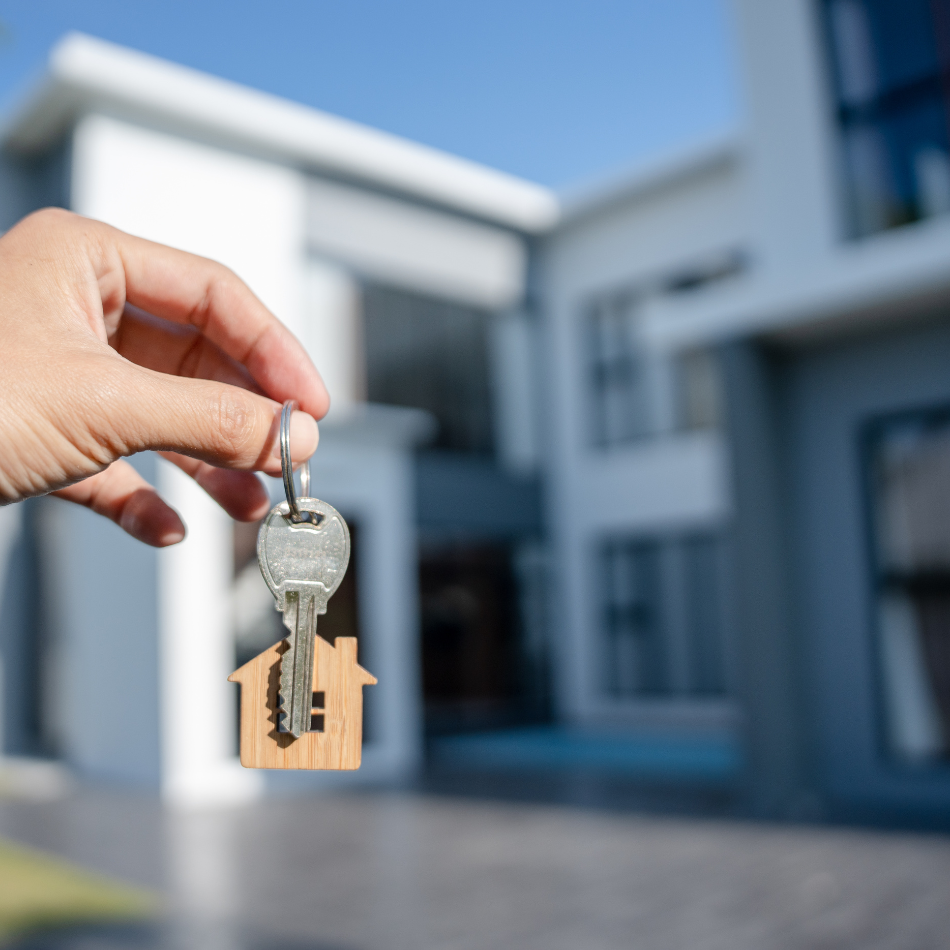
Marketing is key to attracting buyers in the holiday season. Highlight seasonal perks like winter landscaping, energy-efficient heating, and community events. Share your listing on social media, email campaigns, and local real estate websites.
Tip: Feature Londonderry houses for sale or Southern NH houses for sale in holiday-themed campaigns to attract local buyers.
Transition phrase: Furthermore, working with an experienced real estate agent ensures your home reaches the right audience.
Proper pricing is crucial. Buyers expect value, especially during slower months. Analyze recent sales in your area and consider current market trends.
Tip: Pricing slightly below market value can attract more attention and create competitive offers.
Transition phrase: Additionally, a well-priced home in Londonderry or Southern NH can sell faster, even during the holiday season.
Even with a holiday sale, planning ahead ensures a smooth closing process. Buyers appreciate clear communication and prompt responses. Prepare all necessary documents and disclosures to avoid delays.
Tip: Work closely with your agent and lender to coordinate inspections, appraisals, and financing.
Transition phrase: In conclusion, being organized and proactive helps both sellers and buyers complete the transaction efficiently.

Listing your home during the holiday season offers unique advantages. You reach motivated buyers, face less competition, and create an emotional connection through festive staging. Many sellers find success and even sell above market value.
Tip: Combining staging, marketing, pricing, and professional guidance maximizes your home’s appeal and increases the likelihood of a quick sale.
Selling your home during the holidays may seem challenging, but it can be an opportunity to stand out. By listing your home for sale with strategic staging, professional photos, flexible showings, and strong marketing, you can attract serious buyers. Whether you are exploring Londonderry houses for sale or Southern NH houses for sale, using these tips increases your chances of a successful and stress-free sale.

Are you ready to sell your home during the holiday season? Contact a local real estate professional to get expert advice, professional staging, and top marketing support. Make this New Year the start of your next chapter.
If you need more tips on listing your home for sale, or are ready to sell your house give us a call at (603) 883-8840. You can also sign up for your dream home search or reach out to Our Agents for more information. We’d love to help you with your real estate needs.

Buying a home today can feel overwhelming. Interest rates are changing, inventory is limited, and competition is high. However, there are smart ways to get ahead. In this article, we will explore 4 ways home buyers can win in the current New Hampshire housing market. Whether you are searching for Londonderry houses for sale or Southern NH houses for sale, these strategies can help you save money, gain flexibility, and find the right property.
Renovation financing allows buyers to purchase a home and make upgrades with a single loan. This is especially helpful if a home needs repairs or updates before it feels like your perfect space. Instead of spending extra cash out-of-pocket, renovation loans let you roll costs into your mortgage.
Why it works: Homes that need updates often have less competition. With renovation financing, you can transform a fixer-upper into your dream home. Buyers can increase value while creating a home that fits their style and lifestyle.
Tip: Programs like FHA 203k and Fannie Mae HomeStyle loans are popular choices. Work with a mortgage professional to understand requirements, interest rates, and project limits.
Transition phrase: Furthermore, renovation financing gives buyers flexibility in choosing homes that other buyers might overlook.
A seller credit can help home buyers reduce monthly payments by negotiating closing costs and interest rate points. Many sellers are open to credits in a competitive market, especially if it helps close the deal faster. This approach is ideal for buyers who want to manage upfront costs while keeping payments manageable.
How it works: Buyers can ask sellers to contribute to mortgage points or closing costs. These contributions lower the effective interest rate and reduce monthly expenses.
Tip: Always work with a skilled real estate agent to calculate the long-term savings. Negotiating seller credits can make a significant difference when purchasing homes in Southern NH or Londonderry.
Transition phrase: In addition, seller credits can provide more financial breathing room for buyers who want to invest in renovations or furnishings.

Investing in a 2-4 unit property can be a smart strategy for home buyers. FHA loans allow buyers to purchase multi-family homes with just a 3.5 percent down payment. This can be a game-changer for first-time buyers who want to offset mortgage costs with rental income.
Benefits: Living in one unit while renting the others helps cover the mortgage. This approach builds equity faster and allows buyers to start generating income immediately.
Tip: Carefully evaluate rental potential, property condition, and local rental laws. Working with an agent familiar with Southern NH rental markets can help you make the right choice.
Transition phrase: Moreover, buying a multi-unit property gives buyers flexibility and the potential for long-term financial growth.
Down payment assistance programs help buyers who struggle to save for upfront costs. These programs can provide grants or low-interest loans to cover down payments or closing costs. First-time buyers, veterans, and low to moderate-income households often qualify.
How it works: Each program has eligibility requirements based on income, location, or home type. Using these programs can make the difference between qualifying for a home and continuing to rent.
Tip: Check local programs in New Hampshire. Some assistance is available for Londonderry houses for sale and other Southern NH towns. Combining down payment assistance with renovation financing or seller credits can maximize savings.
Transition phrase: Additionally, buyers using down payment assistance often gain the confidence to compete in a competitive market without compromising financial stability.

The current New Hampshire housing market requires creativity and knowledge. Buyers who use renovation financing, seller credits, multi-unit purchases, and down payment assistance can overcome challenges. These strategies provide financial leverage, reduce risk, and help buyers secure the home they want.
When exploring Londonderry houses for sale or Southern NH houses for sale, these tools allow buyers to act quickly and confidently. Rather than paying full retail or settling for a home that does not meet needs, strategic buyers can create opportunities to win.
Navigating financing, negotiations, and property options can be overwhelming. Partnering with an experienced real estate agent is critical. They can guide you through loan programs, negotiate seller credits, and identify properties with rental potential.
Tip: Choose an agent familiar with Southern NH and Londonderry real estate. Their knowledge of local markets, schools, and neighborhoods ensures buyers make informed decisions.
Buying a home today requires strategy, creativity, and expert guidance. Using renovation financing, seller credits, multi-unit properties with 3.5 percent down, and down payment assistance allows buyers to save money and gain long-term advantages.
These four strategies give buyers confidence in a competitive market. Whether you are looking at Londonderry houses for sale or Southern NH houses for sale, knowing your options makes a real difference. Act smart, leverage available resources, and position yourself to win.
Are you ready to explore NH homes with confidence? Contact a local real estate professional to learn more about financing options, down payment assistance, and strategies to win in today’s market.

If you need more tips on WAYS HOME BUYERS CAN WIN, or are ready to sell your house give us a call at (603) 883-8840. You can also sign up for your dream home search or reach out to Our Agents for more information. We’d love to help you with your real estate needs.

Are you thinking about tackling home renovations yourself? It can be tempting to save money by doing it yourself. However, some jobs are better left to the pros. Handling complex work without proper experience can cost more in the long run. In this guide, we will explore DIY projects better left to the pros to keep your home safe and maintain its value. This advice is especially useful if you are selling your home in New Hampshire, whether you are checking out Londonderry houses for sale or Southern NH houses for sale.
Electrical projects are one of the most dangerous DIY tasks. Even small mistakes can lead to fire hazards or serious injuries. Licensed electricians have the knowledge to handle wiring safely. They know local codes, which is essential if you plan to sell your home. Attempting electrical work on your own can also void your homeowner insurance in some cases. Instead of risking your safety and your home’s value, hire a professional.
Tip: Simple upgrades like changing light bulbs or swapping out fixtures are safe for homeowners. But rewiring, installing outlets, or working on the breaker box should always be left to a licensed electrician.
Plumbing may seem straightforward, but it can quickly become overwhelming. Mistakes in plumbing can lead to water damage, mold, and expensive repairs. Leaking pipes or improperly installed water heaters can ruin your home’s structure. Licensed plumbers have the tools and experience to fix complex plumbing issues correctly.
Tip: Homeowners can handle minor tasks such as replacing a faucet washer or unclogging drains. Anything beyond that, including pipe replacement or bathroom remodels, should be left to the pros.
Your roof protects your entire home from weather damage. Working on a roof is extremely risky and requires proper safety measures. Even small errors in installation can lead to leaks and costly repairs. Professional roofing contractors know how to select materials, apply them correctly, and meet local building codes.
Tip: Simple gutter cleaning or minor shingle replacements may be safe with caution. Full roof repairs or replacements require expert knowledge to avoid disasters.

Heating and cooling systems are complex and vital for home comfort. Incorrect installation or repair can reduce system efficiency or cause dangerous gas leaks. HVAC technicians are trained to handle furnaces, air conditioners, and ductwork safely. This ensures your system runs efficiently and protects your home’s air quality.
Tip: Homeowners can replace filters or clean vents, but do not attempt furnace or AC repairs. These systems are too complex and carry safety risks.
Making structural changes, such as removing walls or expanding rooms, requires careful planning. Even seemingly minor changes can affect your home’s foundation and overall stability. Structural mistakes can be very costly and dangerous. Licensed contractors and engineers can ensure that renovations are safe and compliant with building codes.
Tip: Cosmetic updates like painting, decorating, or minor flooring changes are safe for DIY. But never remove load-bearing walls or alter your home’s frame without professional guidance.
Installing floors can look simple, but mistakes can result in uneven surfaces, squeaks, or long-term damage. Professionals know how to prepare subfloors, choose the right materials, and install them efficiently. Proper installation increases durability and helps maintain your home’s value.
Tip: DIY-friendly flooring projects include laminate or vinyl click systems that are easier to manage. Hardwood or tile installation is best left to the pros to ensure longevity.

Attempting complex projects without experience can be risky, expensive, and stressful. Professionals bring safety, quality, and efficiency to renovations. Moreover, when selling your home, buyers notice quality workmanship. Poor DIY jobs can decrease home value and even deter potential buyers. If you are exploring Londonderry houses for sale or Southern NH houses for sale, keeping your home in top condition is crucial. Hiring the right contractors ensures your investment pays off.
Look for licensed and insured contractors with strong reviews and local experience. Ask for references and examples of previous work. Clear communication and written contracts protect both you and the contractor. It is worth spending time finding the right professional to save headaches later.

While DIY projects can be rewarding, some tasks are simply better left to the pros. Electrical work, plumbing renovations, roof repairs, HVAC maintenance, structural changes, and major flooring installation require expert skills. By leaving these projects to licensed professionals, you protect your home, your family, and your wallet.
Whether you are preparing to sell your home or simply want to maintain its value, professional help can make all the difference. Explore Londonderry houses for sale or Southern NH houses for sale with confidence, knowing your home is in excellent condition.
Are you ready to make smart, safe home upgrades? Contact local licensed contractors for guidance. Protect your home, improve its value, and make your living space comfortable and beautiful.
If you need more tips on DIY projects better left to the pros, or are ready to sell your house give us a call at (603) 883-8840. You can also sign up for your dream home search or reach out to Our Agents for more information. We’d love to help you with your real estate needs.

Millennials are now a major force in the housing market. To grow your business, you need to know how to attract millennial homebuyers effectively. Whether you’re selling South Hudson houses for sale or other Southern NH homes, younger buyers have different priorities than previous generations.
They care about lifestyle, technology, and convenience. They want homes that fit modern living while staying within budget. By understanding their desires, REALTORS can tailor marketing efforts, highlight the right features, and create a buying experience that feels personal and exciting.
Millennials have unique home-buying preferences. To attract millennial homebuyers, consider these priorities:
Open floor plans: They love spaces that feel bright, flexible, and easy to entertain.
Updated kitchens and bathrooms: Modern appliances and finishes matter.
Energy efficiency: Eco-friendly features like solar panels, smart thermostats, and LED lighting appeal strongly.
Outdoor space: Patios, decks, and small yards for pets and gatherings are highly desirable.
Low-maintenance properties: Millennials often prefer homes that don’t require major renovations.
Highlighting these features in your listings and marketing materials makes properties more appealing.
Millennials are online buyers. To attract millennial homebuyers, digital marketing is essential.
High-quality photos: Mobile-friendly and visually stunning images are key.
Video tours: Short, engaging videos capture attention and showcase flow and space.
Social media ads: Platforms like Instagram, TikTok, and Facebook reach younger buyers effectively.
Email campaigns: Personalized emails with new listings or market updates keep them engaged.
Website optimization: Easy-to-use search features and clear property info boost user experience.
Digital marketing lets you showcase Southern NH houses for sale to buyers exactly where they spend time online.

Millennials want more than a house. They want a lifestyle. To attract millennial homebuyers, emphasize:
Walkability to shops, restaurants, and parks
Access to trails, gyms, and community centers
Local events, farmers’ markets, and social spaces
Proximity to work and public transit
Communities like South Hudson offer a blend of suburban comfort and access to amenities that millennials value.
Tech-savvy millennials expect agents to be efficient and modern. Integrate technology to attract millennial homebuyers:
Virtual tours and 3D walkthroughs: Let buyers explore homes online.
E-signing and digital documents: Streamline the buying process.
Mobile alerts for new listings: Notify them instantly when a home hits the market.
Smart home features: Highlight Wi-Fi thermostats, smart locks, and security cameras.
Using technology demonstrates you understand their lifestyle and simplifies the buying journey.
Millennials respond to marketing that feels personal, transparent, and authentic. To attract millennial homebuyers, write copy that:
Uses simple, conversational language
Highlights practical benefits like energy savings or low maintenance
Showcases lifestyle perks over just square footage
Includes storytelling to connect emotionally
For example: “Enjoy morning coffee on a sunny deck while your kids play in the backyard.” This paints a picture they can relate to.
Many millennials are first-time buyers and may need help understanding financing. To attract millennial homebuyers, provide:
Clear explanations of down payment options
Guidance on first-time buyer programs in New Hampshire
Mortgage pre-approval tips and resources
Budget planning advice
Support through financing makes buyers feel confident and increases the likelihood of closing a sale.
Millennials care about the environment. Highlighting sustainable features helps attract millennial homebuyers:
Solar panels and renewable energy options
Energy-efficient appliances and windows
Smart irrigation and drought-resistant landscaping
Recycling and composting-friendly setups
Eco-friendly homes often feel modern, thoughtful, and aligned with millennial values.

Remote work is popular among millennials. Homes that offer functional office or flex spaces are more attractive.
Create a dedicated office nook or room
Ensure strong Wi-Fi and connectivity
Showcase multi-purpose rooms for fitness, study, or hobbies
Homes in Southern NH and South Hudson can feature flexible spaces that meet these needs.
Millennials prefer video over static images. To attract millennial homebuyers, create:
Short, engaging property walkthroughs
Neighborhood highlight videos
Live virtual open houses on social media
Video helps buyers feel connected to a property before visiting in person.
Younger buyers often seek value and long-term growth. Emphasize:
Competitive pricing for Southern NH houses for sale
Potential for home appreciation over time
Low property taxes and no NH state income tax
Comparison to nearby Massachusetts towns for cost savings
Showing the financial benefits alongside lifestyle perks strengthens your appeal.
Millennials search online first. To attract millennial homebuyers, make sure listings are optimized:
Accurate, up-to-date information
Clear photos and floor plans
Highlight unique features like outdoor space, smart home tech, or storage
Include nearby amenities like schools, parks, and transit
Listings should answer questions before buyers even call.

Millennials trust reviews and testimonials. Showcase social proof to attract millennial homebuyers:
Share client success stories and positive experiences
Include photos or short videos of happy buyers
Highlight your expertise in Southern NH real estate
Feature online ratings and recommendations
Social proof builds trust and encourages action.
Millennials often value community as much as the home itself. Highlight:
Vibrant social scenes and local hangouts
Farmers’ markets, parks, and community events
Access to recreation, hiking, and fitness centers
Promote the area alongside the property to make a lifestyle connection.
Open houses attract millennials when done right. Use interactive and tech-friendly methods:
Virtual tours for remote viewers
QR codes with digital brochures
Live social media streaming
Coffee, light snacks, and casual networking
A welcoming, modern approach resonates with younger buyers.
Transparency is critical. To attract millennial homebuyers, be clear about:
Home condition and history
Pricing strategy and comparable sales
Expected costs, taxes, and fees
Steps in the buying process
Honest communication builds trust and reduces buyer anxiety.
Millennials use phones for nearly everything. Ensure your marketing is mobile-friendly:
Responsive website design
Easy-to-use listing search
Click-to-call buttons and instant messaging
Mobile-friendly forms for inquiries and applications
Convenience and speed are highly valued.
Millennials often seek homes that require minimal work. Focus on:
Updated kitchens and baths
Fresh paint, new flooring, or modern fixtures
Functional appliances and storage solutions
Move-in-ready homes appeal to buyers who prioritize convenience.
Millennials want personal experiences. To attract millennial homebuyers, customize your approach:
Send personalized listing alerts
Recommend neighborhoods based on lifestyle preferences
Offer private tours and flexible scheduling
Tailoring the experience makes buyers feel valued and understood.
Millennials appreciate outdoor living spaces:
Decks, patios, and fenced yards
Gardens and green spaces for pets
Easy access to walking trails and parks
Highlighting outdoor amenities helps properties stand out.

Beyond sustainability, energy-efficient homes save money. Emphasize:
Lower utility bills with modern appliances
Insulation and windows that reduce costs
Smart thermostats and energy monitoring
Cost savings resonate with budget-conscious millennials.
Millennials value agents who understand the area. Share knowledge about:
Schools and daycare options
Restaurants, coffee shops, and nightlife
Commuting routes and transit options
Local events and recreational activities
Demonstrating local expertise builds credibility and trust.
Millennials often share experiences online. Encourage:
Sharing photos of homes on social media
Writing reviews of your service
Tagging listings or events
This increases visibility and strengthens your reputation with younger buyers.
To attract millennial homebuyers, focus on lifestyle, technology, and transparency. Showcase homes that match their priorities while using modern marketing tools.
Highlight South Hudson houses for sale and other Southern NH options with open floor plans, updated kitchens, flexible spaces, and outdoor living. Use social media, video tours, and personalized communication to engage buyers.
Millennials are ready to buy, but they want agents who understand their values, simplify the process, and create an enjoyable experience. By adopting these strategies, REALTORS can tap into a growing market and make lasting connections.

If you need more tips on how to attract more millenials to your property, or are ready to sell your house give us a call at (603) 883-8840. You can also sign up for your dream home search or reach out to Our Agents for more information. We’d love to help you with your real estate needs.